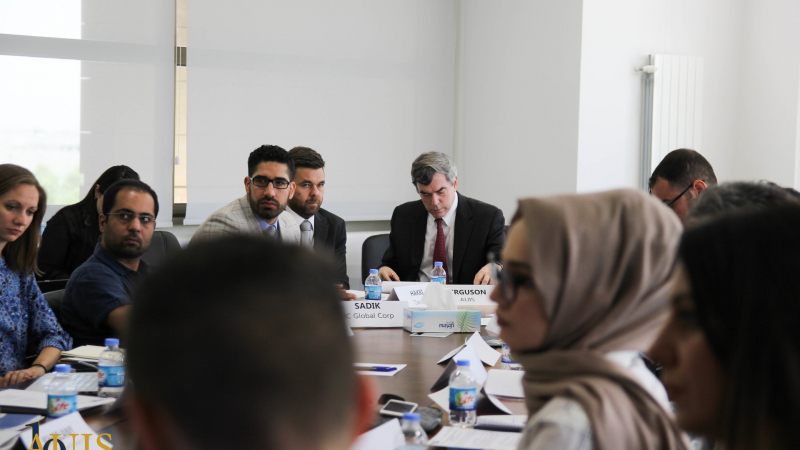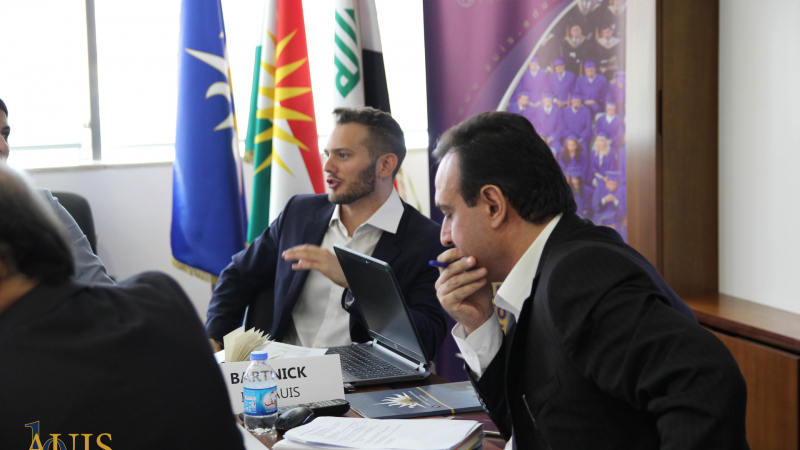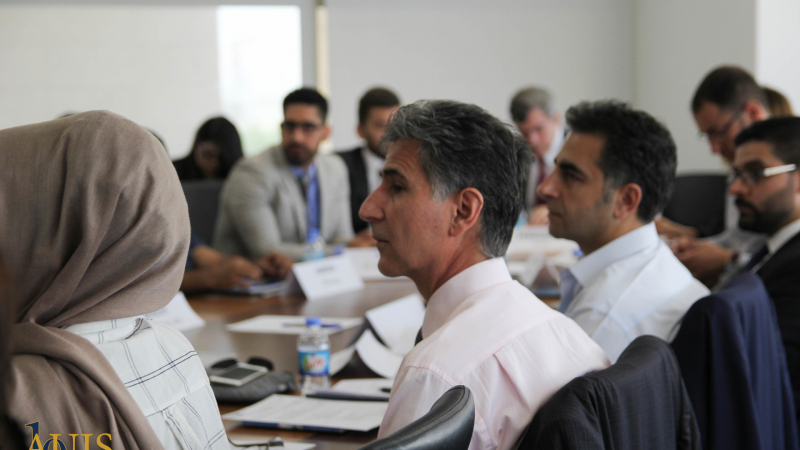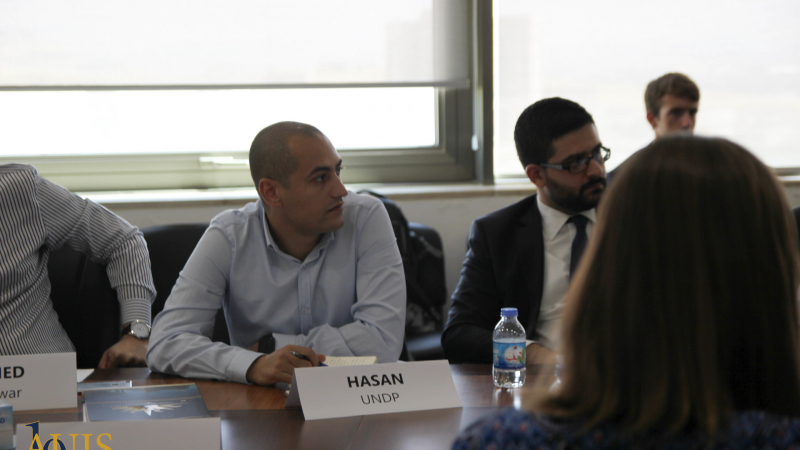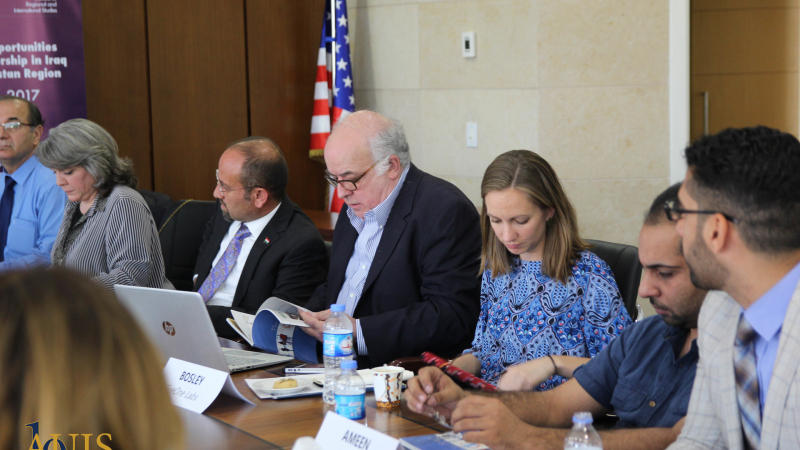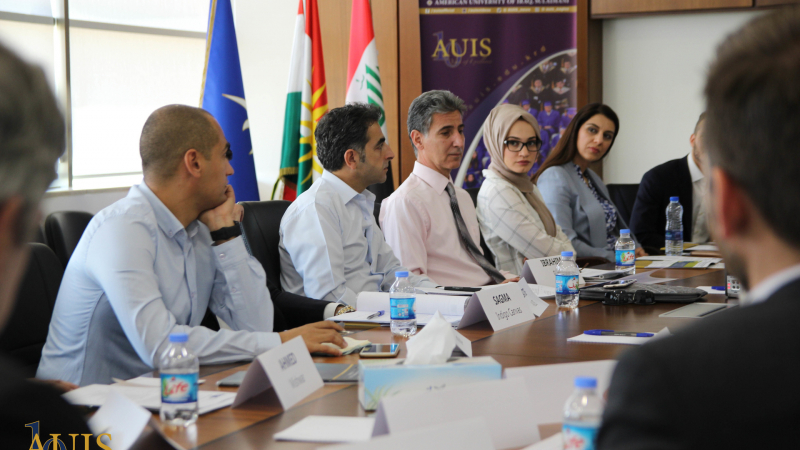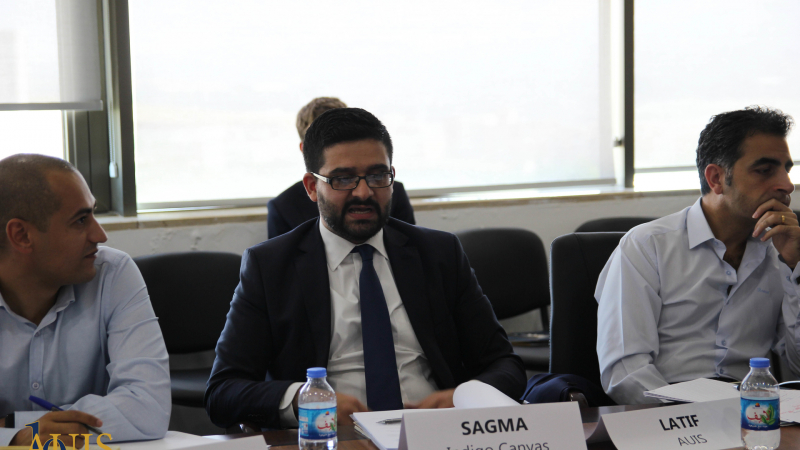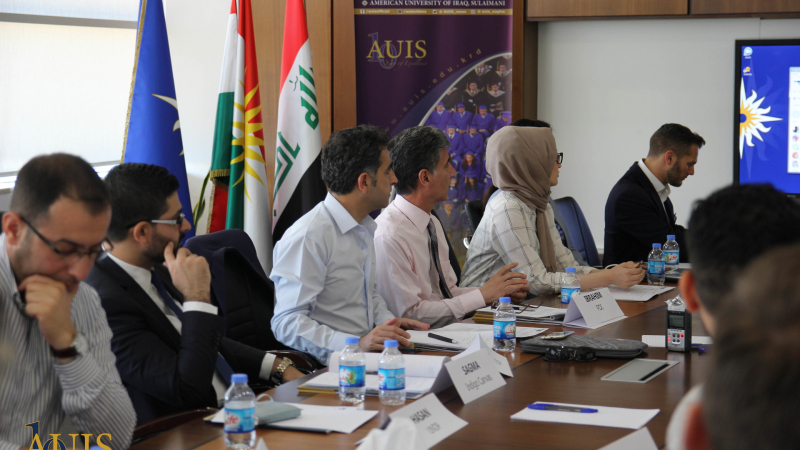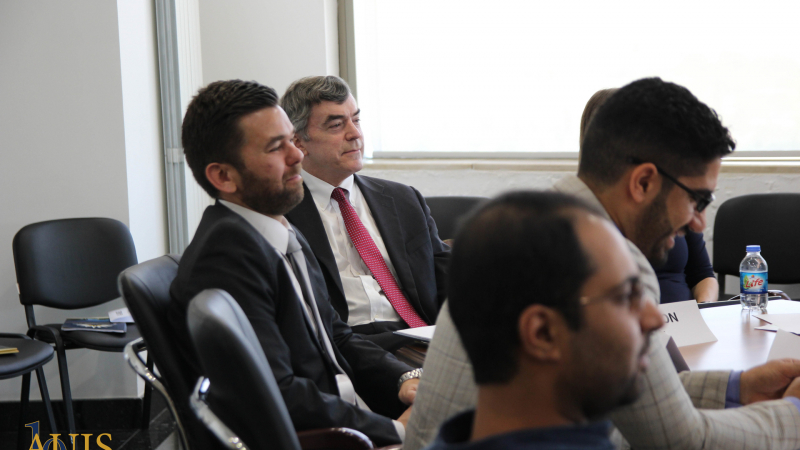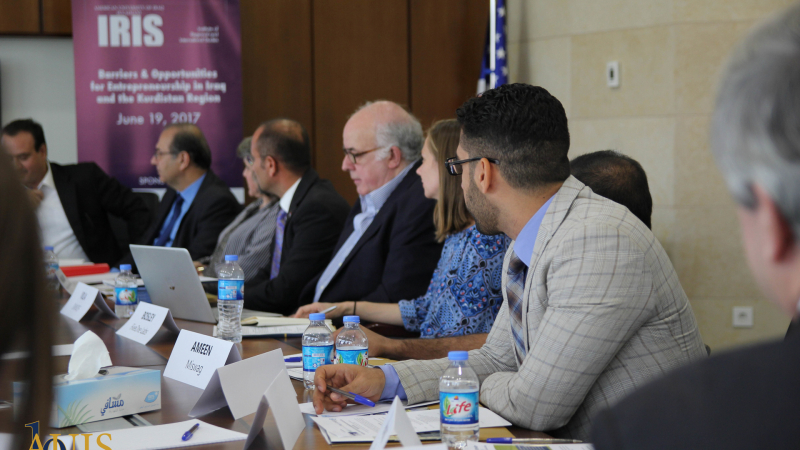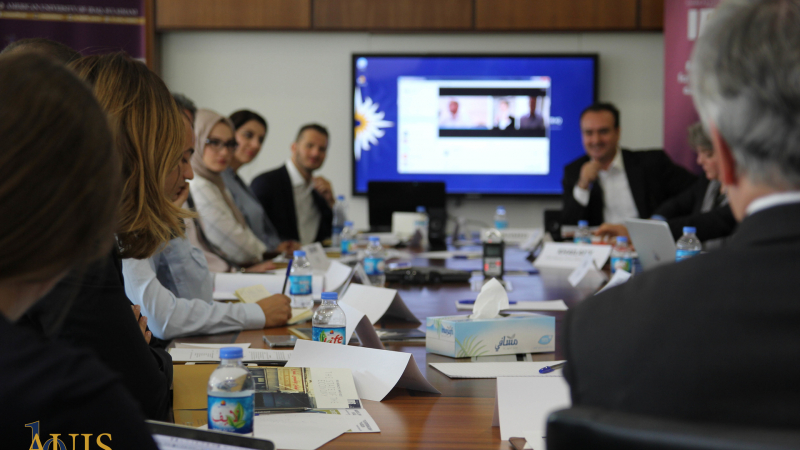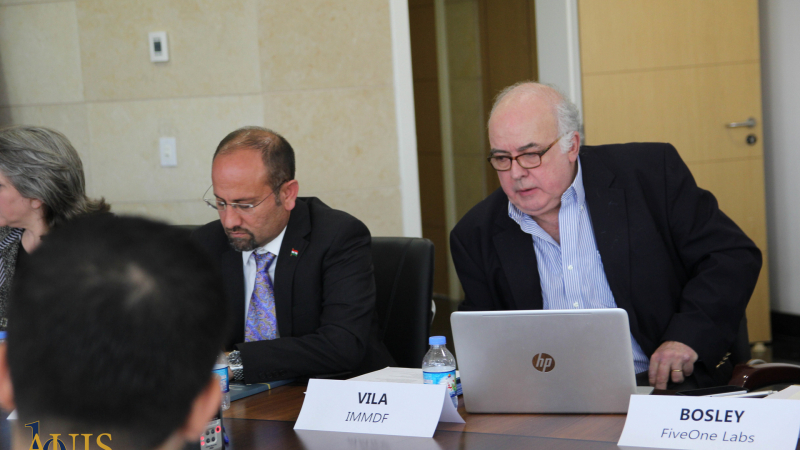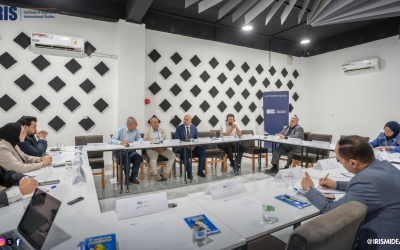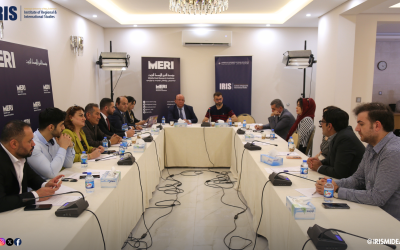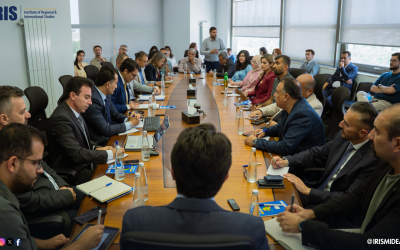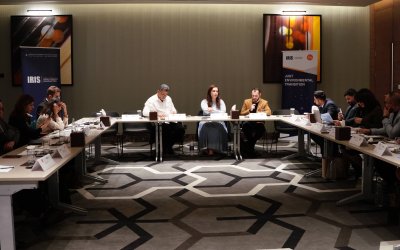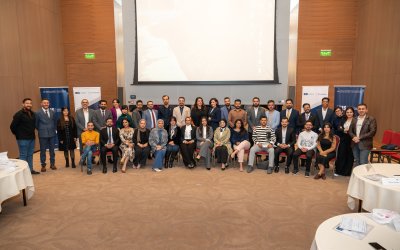On June 19, 2017, IRIS hosted a workshop entitled “Barriers and Opportunities for Entrepreneurship in the Kurdistan Region and Iraq,” in partnership with the Iraq Middle Market Development Foundation (IMMDF), IraqCom Technologies, and the Qaiwan Group. The event was chaired by Dr. Diar Ahmed, Managing Director of IraqCom Technologies, and IRIS Research Fellow Aaron Bartnick, future MBA candidate at the University of Oxford.
The meeting brought together over two dozen entrepreneurs, venture capital leaders, academics, government representatives, and members of the international NGO community from across the Kurdistan Region of Iraq (KRI), Iraq, and the MENA region. AUIS students and faculty also participated in the event. The diversity of perspectives and experiences present at the event reflects both the complex network of stakeholders in Iraq’s entrepreneurial ecosystem and the huge potential a strong entrepreneurship sector represents for both Iraq and the KRI.
The event was structured in two parts. After opening remarks from AUIS President Bruce Walker Ferguson and Dr. Diar Ahmed, participants worked to establish a shared understanding of the unique context and challenges of entrepreneurship in Iraq and the KRI. In seeking to answer the question, “What does it mean to be an entrepreneur in Iraq?”, the panel discussed a wide array of challenges, including capital access, a complex regulatory environment, barriers to market entry, infrastructure limitations, and cultural norms around entrepreneurship and risk taking.
In the second part of the discussion, the group focused on developing a roadmap to making entrepreneurship a more accessible career option in Iraq and the KRI. Specific recommendations included streamlining the business incorporation process, expanding access to mobile banking and payment platforms, and partnering with government institutions to increase capital flows to entrepreneurs. Recognizing the lack of infrastructure, mentorship, and capital support in the KRI, the group also expressed support for AUIS’ proposed establishment of an entrepreneurship lab based at the university.
Most importantly, however, the group concluded that all of these structural changes must exist on top of a cultural foundation that encourages risk taking and ‘destigmatizes’ failure. That cultural shift will take time, but it is the lynchpin for creating a successful entrepreneurial ecosystem in Iraq and the KRI.
IRIS also published a full report following this event. Download it here.

